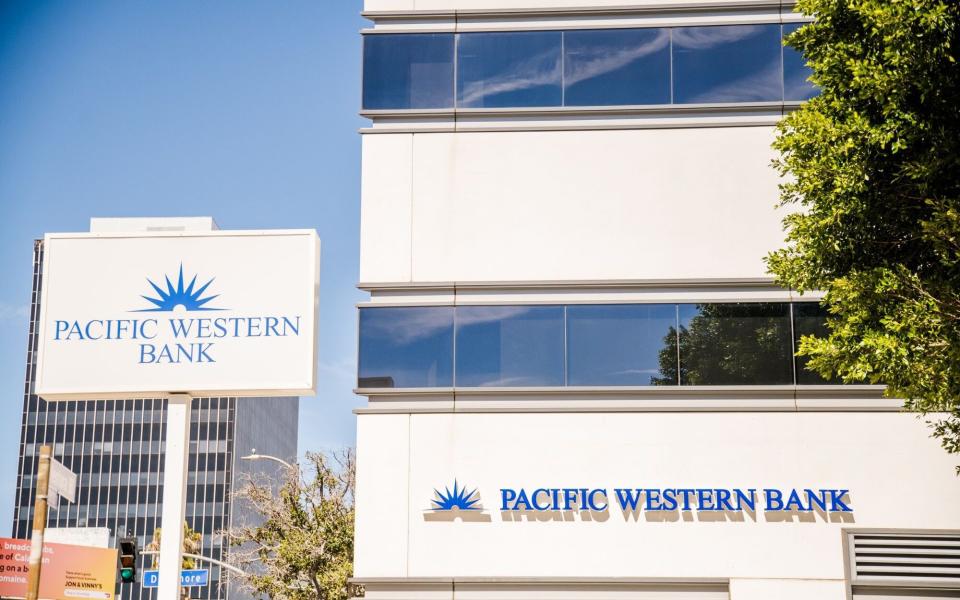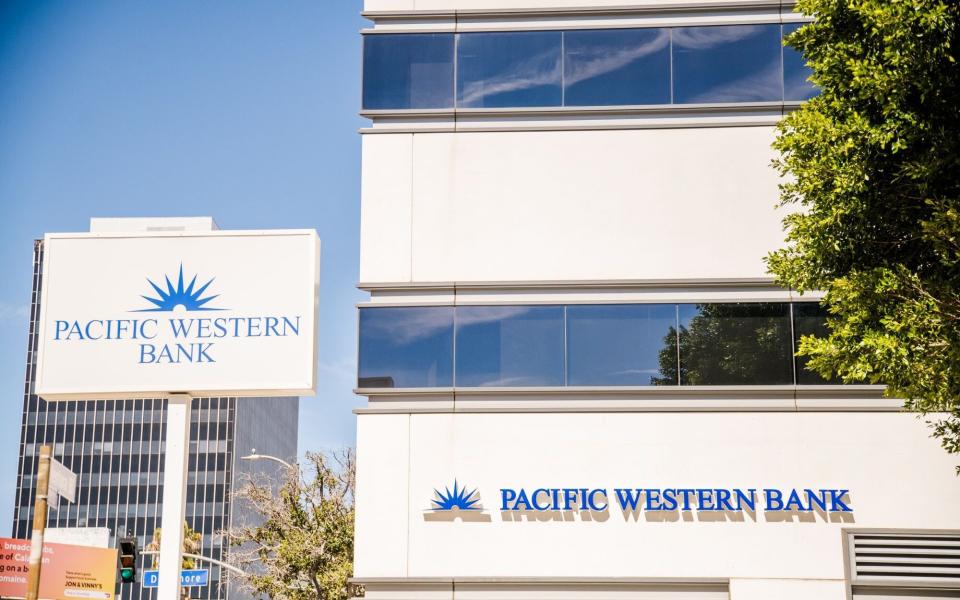
PacWest shares plummeted by as much as 60pc in after hours trading in New York amid talks of a rescue for the US regional bank.
The bank has instructed boutique investment bank Piper Sandler to help it explore strategic options including a sale, according to Bloomberg.
Shares in fellow regional US bank Western Alliance also fell by as much as 38pc in after-hours trading as investors remain concerned about the worst banking crisis since 2008.
It comes after the Federal Deposit Insurance Corporation (FDIC) seized control of First Republic Bank on Monday before securing a sale to JP Morgan.
Only six weeks ago, PacWest said it had shored up its access to cash by raising $1.4bn via a lending facility from Apollo-backed investment firm Atlas SP Partners.
The banking turmoil was triggered by the collapse of Silicon Valley Bank, Signature Bank and crypto-focused lender Silvergate in March.
Read the latest updates below.
08:53 AM
BMW sales slip in Europe and China
German carmaker BMW has a sharp drop in first-quarter profits due to an accounting effect, while sales also slipped in Europe and China.
Net profits fell 64pc to €3.7bn (£3.3bn) compared to the period last year, when the figure had been boosted by the full integration of its Chinese business BMW Brilliance.
The Munich-based group’s operating profit nevertheless jumped 58.5pc to €5.4bn, lifted by continued high prices for the luxury carmaker’s vehicles.
But overall vehicle sales declined by 1.5pc year-on-year, with a 6.6pc slide in China and a 1.9pc decrease in Europe.
In Europe, “the environment was characterised by persistent inflation and high interest rates,” BMW said.
In Asia meanwhile, the “after-effects of the coronavirus pandemic in China dampened the BMW Group’s business development”.
The picture was more positive in the United States, where deliveries of vehicles were up 11.4pc.
The group also saw sales of fully electric vehicles more than double, and they now represent 11pc of all the group’s deliveries.

08:46 AM
Domino’s sizzles as more customers opt to pick up orders
Pizza chain Domino’s UK said it increased its market share in the first three months of the year as an increase in the number of collections offset a drop in delivery orders.
The fast food outlet – which also has sites in Europe – said it saw its share of the UK takeaway market rise to 7.8pc in the first quarter, up from 6.4pc a year earlier.
It came as around 23pc more customers went into its stores to pick up their orders, compared with a 4.9pc drop in the number of delivery orders.
But chief executive Elias Diaz Sese warned that the continued high cost of living might put even more pressure on household budgets. He said:
We have delivered record first-quarter sales and orders thanks to the immense hard work of our franchise partners and colleagues in executing our strategy and our relentless focus on giving customers the best possible quality, value and service.
Whilst this year has started well for Domino’s, there continues to be uncertainty in the economic environment, with household budgets likely to remain under increasing pressure.
However, we continue to be excited about the many opportunities we see for Domino’s in 2023 and beyond as we continue to work towards our purpose of delivering a better future through food people love.
Shares rose 0.8pc in early trading.

08:39 AM
Markets downbeat amid Powell’s inflation worries
The FTSE 100 has fallen with losses from miners dragging the commodity-heavy index down, while broader market sentiment was also downbeat after US Federal Reserve Chairman Jerome Powell said inflation was still a concern.
The blue-chip index and the mid-cap FTSE 250 index shed as much as 0.5pc each but have pared back declines to 0.2pc and 0.3pc respectively.
Base metal miners fell 1.8pc, even as metal prices rose, as a weaker-than-expected demand recovery in top consumer China prevented dented sentiment.
However, oil and gas stocks rose 1.5pc, led by a 2.2pc rise in Shell as the oil giant posted first-quarter net profit of $9.6bn (£7.6bn), topping analysts’ forecasts.
The Fed raised interest rates by 25 basis points on Wednesday and signalled it may pause further increases.
However, Fed chair Jerome Powell’s view that inflation was still a concern caused uncertainty among investors on its monetary policy trajectory.
Markets also await the European Central Bank’s rate decision due at 12.15pm UK time.
08:31 AM
AstraZeneca boss being paid enough to avoid departure to US rival, says chairman
The new chairman of AstraZeneca has said the company has drowned out the threat of its chief executive Pascal Soriot quitting the company for more lucrative roles in the US.
Michel Demare, who headed the pharma group’s remuneration committee before starting as chair last week, said the criticism from shareholders about increasing its boss’s pay was outweighed by the benefits.
He told the Financial Times that Mr Soriot knew “that if he wanted to get more in the US, he would.”
He added: “But he has a very exciting project here. So I think we don’t believe it is an issue now.”
It comes as Julia Hoggett, chief executive of the London Stock Exchange, said Britain is being held back by a campaign against high pay.
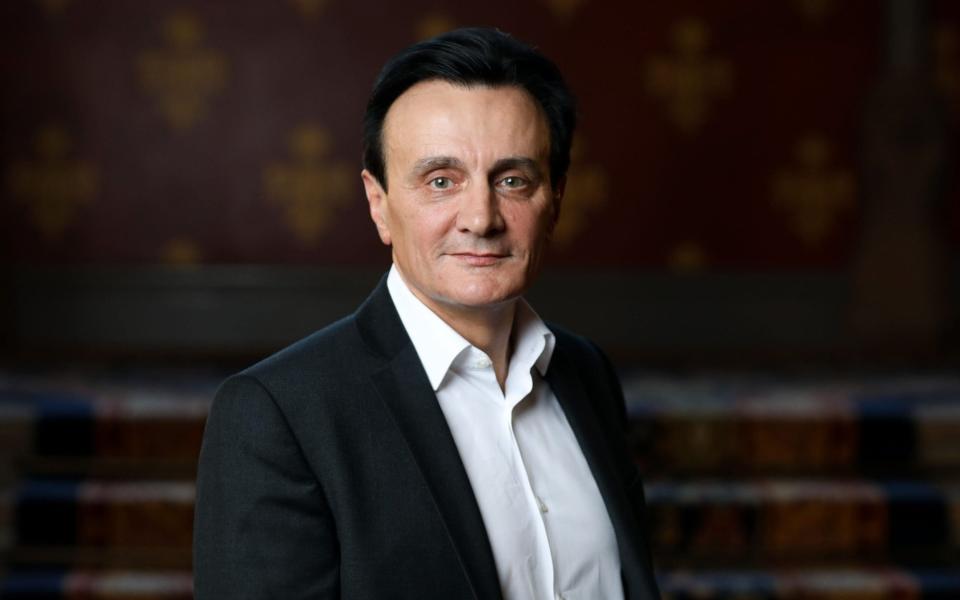
08:20 AM
Competition regulator launches review of AI
The competition regulator has launched an initial review of artificial intelligence models, saying it will look into competition and consumer protection considerations in the development and use of the technology.
Competition and Markets Authority chief executive Sarah Cardell said: “It’s crucial that the potential benefits of this transformative technology are readily accessible to UK businesses and consumers while people remain protected from issues like false or misleading information.”.
While research on AI has been going on for years, the sudden popularity of generative AI applications such as OpenAI’s ChatGPT and Midjourney have led to a scramble by lawmakers to find ways to regulate any uncontrolled growth, and unintended consequences.
Regulators around the world are now trying to find a balance where governments could develop “guardrails” without stifling innovation.
The UK Government plans to split responsibility for overseeing AI between its regulators for human rights, health and safety, and competition, rather than creating a new body dedicated to the technology.
08:16 AM
PacWest insists deposit flows not ‘out-of-the-ordinary’
PacWest Bancorp said deposits have increased since March and confirmed it is in talks with several potential investors.
The California-based lender is seeking to calm markets after a 60pc stock rout that made it the new focal point of concern over the health of US regional lenders. It said in a statement:
The bank has not experienced out-of-the-ordinary deposit flows following the sale of First Republic Bank and other news.
Our cash and available liquidity remains solid and exceeded our uninsured deposits.
Shares in the bank plummeted in after-hours US trading on Wednesday after Bloomberg reported it was considering strategic options including a sale.
PacWest added: “Recently, the company has been approached by several potential partners and investors – discussions are ongoing. The company will continue to evaluate all options to maximise shareholder value.”
08:10 AM
Next sales fall as shoppers grapple with inflation
Next’s sales fell by less than expected in the first quarter as cash-strapped shoppers juggled rising fashion prices and household bills.
The clothing and homeware stallwart said full price sales fell 0.7pc in a weak start to the year.
Although the drop in sales was smaller than forecast, Next maintained a downbeat outlook and said sales could likely fall by as much as 5pc in the second quarter, partly due to colder weather and less demand for weddings and other events.
It comes as the cost-of-living crisis shows little sign of easing and shoppers are having to grapple with higher food, rent, mortgage and energy bills.
The retailer, which has been pushing up the prices of its clothes to help offset higher input costs, is considered a bellwether for the UK retail sector as it has hundreds of stores and a successful website.
The shares have risen 7pc in the past year and were up 0.6pc in early trading today.
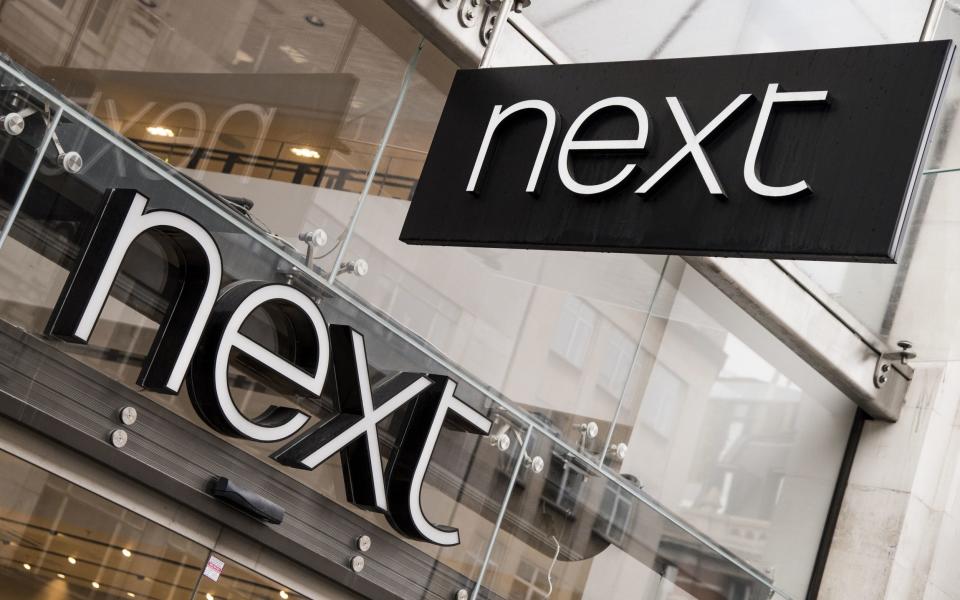
08:03 AM
Markets tentative at the open
It has been a mixed start to the day on the markets as traders digest the US Federal Reserve’s quarter point interest rate rise – and amid the banking turmoil in America.
The FTSE 100 has begun the day barely 0.1pc lower at 7,768.41 while the FTSE 250 has begun the day flat at 19,359.34.
07:56 AM
Shell profits renew calls for ‘proper windfall tax’
Shell’s higher-than-expected profits has renewed calls for tougher windfall taxes on oil companies.
Shadow chancellor Rachel Reeves said: “Shell reports £7.6bn profits for its first quarter yet the Tories refuse to bring in a proper windfall tax on oil and gas giants to freeze council tax this year, as Labour would.
“We’ll tackle the cost-of-living crisis, and put working people first.”
Liberal Democrat leader Sir Ed Davey said:
Energy giants like Shell should not be able to rake in huge profits while families across the country are struggling to make ends meet.
Shell’s latest profits once again demonstrate the urgent need for a robust windfall tax on big energy companies.
Rishi Sunak’s refusal to close windfall loopholes for big energy companies shows just how out of touch this Conservative Government is with the struggles that families are facing right now.
TUC general secretary Paul Nowak said the Government needed to “end the energy racket”.
He added: “These sky-high profits beg the question – will the Government ever have the backbone to tax the energy giants properly?”
07:51 AM
Shell’s first quarter profits higher than when Russia first invaded Ukraine
After Shell reported higher profits that expected, Interactive Investor’s head of investment Victoria Scholar gave this analysis:
Shell reported first quarter profit of $9.65bn, beating analysts’ expectations for $8.14bn and higher than its earnings in Q1 2022 of $9.13bn when Russia first invaded Ukraine.
The oil giant kept its share buyback programme unchanged at $4bn over the next three months.
Strong trading amid the volatile price environment in Europe and America helped Shell’s earnings outpacing analysts’ expectations and offset the impact of weaker oil and gas prices and lower refining margins.
Its chemicals result also improved on the back of better margins thanks to lower utility and feedstock costs.
Unlike BP, Shell maintained its share buyback programme, returning further cash to shareholders. Over the past year though, shares in Shell are up around 5pc, underperforming BP which is up over 18pc until Wednesday’s close.
Sky high profits for Shell and BP have raised questions about whether oil giants, which benefitted from last year’s commodity boom following the onset of war in Ukraine, should be paying more windfall taxes to redistribute excess profits towards essential government services.
The counter argument is that these profits may not endure, particularly as underlying oil prices weaken amid slowing global demand. During Covid, for example, oil prices fell sharply, resulting in an annual loss for Shell in 2020 of almost $20bn.
07:43 AM
Shell profits hit £7.6bn in first three months of 2023
Oil giant Shell made nearly $1.7bn (£1.4bn) more in profit than experts had expected in the first three months of the year, the company said.
The business joined its rival BP in reporting expectations-beating results this week.
Shell said that its adjusted earnings had risen by 5.7pc compared to the same quarter a year earlier, reaching $9.6bn (£7.6bn).
The business said that compared to the last three months of 2022, it had faced unfavourable tax movements, and the price it was able to sell oil and gas at dropped.
However, Shell said that it had managed to offset some of this through cutting operating expenses and a rise in its chemicals and products trading business.
Like its rival BP, Shell’s results immediately sparked calls for the Government to take a tougher stance against the oil majors. Alexander Kirk, a campaigner at Global Witness, said:
Despite the glaringly obvious inequality at the heart of our energy system, the Government appears to be making the same mistakes all over again.
The simple truth is that the windfall tax has not worked and new evidence has shown that through loopholes in the UK’s tax regime, UK taxpayers are handing oil and gas companies billions extra in tax rebates.
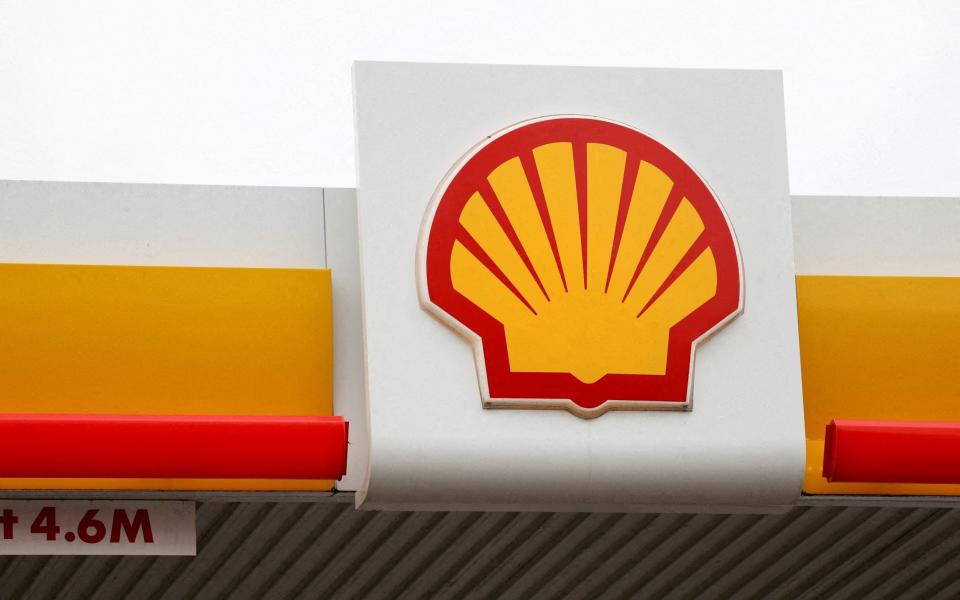
07:32 AM
Vodafone and CK Hutchison to unveil £15bn merged mobile operator
Vodafone and CK Hutchison are reportedly preparing a £15bn tie-up in the UK that would create Britain’s biggest mobile phone operator.
The deal would value the equity of the combined entity at around £9bn, with £6bn of debt, according to the FT, and it would have around 28m customers.
Parties are expected to reveal the merger later this month after the appointment of Margherita Della Valle as Vodafone’s new chief, the publication added.
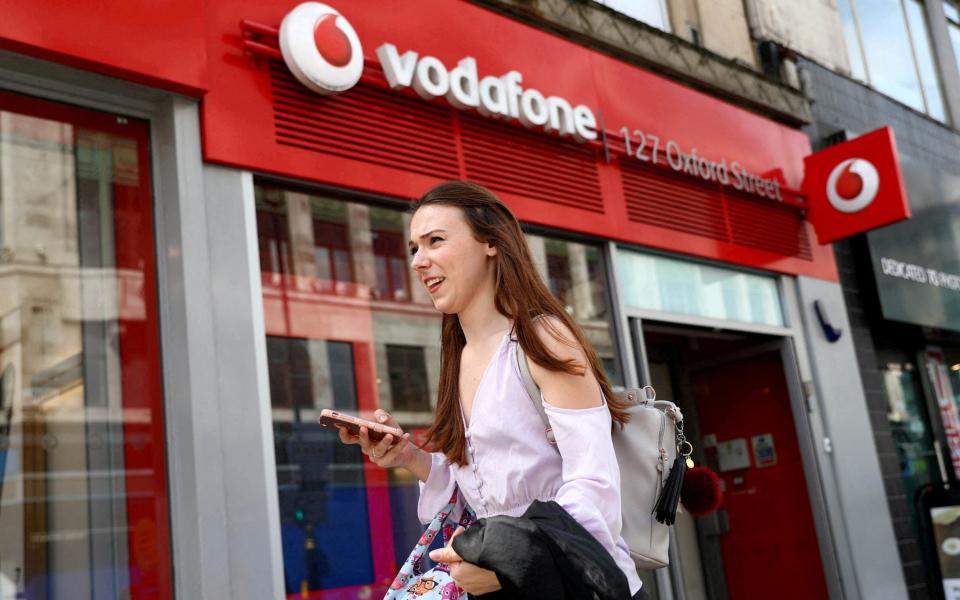
07:03 AM
5 things to start your day
Good morning.
PacWest shares plummeted by 50pc in after hours trading in New York amid talks of a rescue for the US regional bank.
The bank has instructed boutique investment bank Piper Sandler to help it explore strategic options including a sale, according to Bloomberg. It comes after the Federal Deposit Insurance Corporation (FDIC) seized control of First Republic Bank on Monday before securing a sale to JP Morgan.
5 things to start your day
1) Stop vilifying high pay in Britain, City chief urges | Boardroom pay disparity between UK and US has ‘not received enough attention’
2) Coronation coverage to include anti-monarchist views, broadcasters say | Bosses pledge to be ‘representative’ of modern Britain
3) Fed raises US interest rate to 16-year high despite banking crisis | The decision to keep raising rates came despite weeks of turmoil in financial markets that has seen three US banks collapse in the past two months.
4) What is the US debt ceiling and what will it mean if it isn’t raised? | Government runs the risk of not being able to meet its public spending obligations
5) Airbnb encourages people to stay with strangers to save money on holidays | Holiday letting company returns to its roots with single-room rentals
What happened overnight
Wall Street stocks declined Wednesday after the Federal Reserve increased its benchmark interest rate by another quarter of a percentage point as widely expectedly, extending the central bank’s most aggressive hiking cycle since the 1980s.
The Dow Jones Industrial Average finished a choppy session down 0.8pc at 33,414.24.
The broad-based S&P 500 shed 0.7pc to 4,090.75, while the tech-rich Nasdaq Composite Index lost 0.5 percent at 12,025.33.
Bond yields retreated after Fed chair Jerome Powell signalled the central bank would adopt a wait-and-see approach to further rate rises after confirming a tenth straight increase.
The benchmark yield on the 10-year Treasury fell to 3.36pc from 3.44pc late Tuesday.
The two-year yield, which moves more on expectations for the Fed, fell to 3.88pc from 3.99pc.
By Thursday morning, global stock markets had sagged while the Japanese yen rose in reaction to the Fed’s policy statement and signs of stress at another American regional bank.
US bank PacWest Bancorp reported troubles overnight, reminding investors of the precarious health of some banks despite regulators’ assurances around containing the crisis that started with the collapse of Silicon Valley Bank and Signature Bank in March.
The Federal Reserve raised interest rates by a quarter of a percentage point and signalled it may pause further increases, giving officials time to assess the fallout from the bank failures, wait on a political resolution to the US debt ceiling, and monitor inflation.
MSCI’s broadest index of Asia-Pacific shares outside Japan was flat, in trade thinned by Japanese holidays this week.
China’s benchmark index opened weaker as mainland markets returned after their May Day holidays but rebounded, led by state-owned firms.
Investors are increasingly convinced that central banks across Asia will follow the Fed in swiftly closing out this policy tightening cycle and are bracing for interest-rate cuts later this year.
Australia, which serves as a proxy for risk sentiment across the region, snuck in a surprise rate hike less than 40 hours before Powell & Co. delivered what very well could be their last of this cycle. Overnight index swaps show investors expect a quick end to the Aussie hikes.
Malaysia notched a one-and-done rate increase for this year less than a half a day before the Fed. And policymakers in the Philippines last week said they’re ready to lower their inflation forecasts, which means less pressure to stay on the tightening path.
For Indonesia and South Korea, which have already paused their hiking campaigns, the cuts could be nearer. Bloomberg Economics sees Indonesia cutting before year-end amid a resilient rupiah, and the country’s 2-year bond yields fell in Wednesday’s session to their lowest since February. Traders bet Korea could cut within 12 months.
There is an exception: New Zealand’s central bank is seen hiking rates again on May 24 before pausing for the remainder of 2023.


